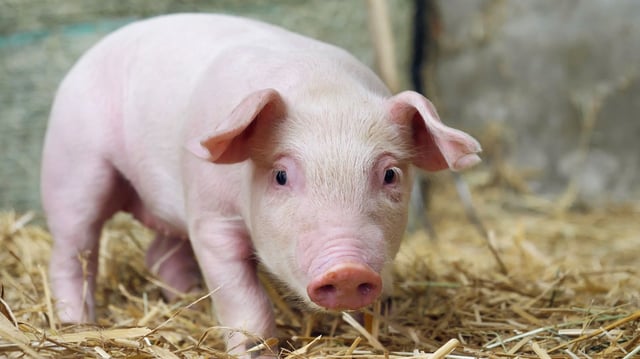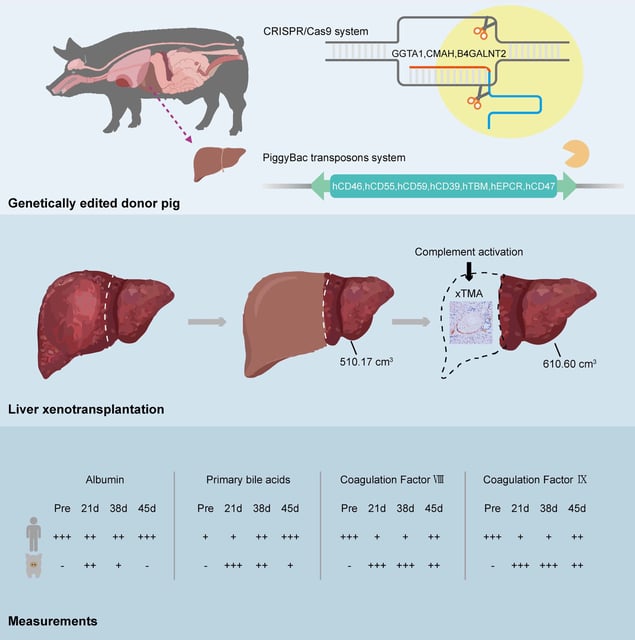Overview
- Surgeons in Hefei, China, implanted an auxiliary liver graft from a genetically modified Diannan miniature pig with 10 gene edits into a 71-year-old man in May 2024.
- The pig liver produced bile and synthesized key proteins, including coagulation factors, with no hyperacute or acute rejection during the first month.
- The team diagnosed xenotransplantation-associated thrombotic microangiopathy, treated it with eculizumab and plasma exchange, and removed the graft on day 38.
- The patient survived 171 days after the procedure and later died of upper gastrointestinal bleeding, the peer-reviewed report states.
- An editorial alongside the study called the case a landmark for hepatology and stressed that immune and coagulation challenges must be solved before broader clinical use.



